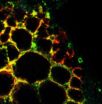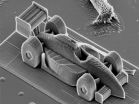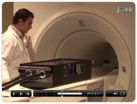Disruptive children and their parents benefit from parenting classes
Research: Evaluation of peer-led parenting intervention for child disruptive behavior problems: A community-based randomized controlled trial
2012-03-14
(Press-News.org) Children with disruptive behavioural problems and their parents can benefit from peer led parenting classes, claims a study published today on bmj.com.
The authors, from the Institute of Psychiatry, King's College London, studied parents and children (aged 2-11 years) from 116 families. The parents were seeking help with managing their children's behavioural problems. The study took place between January and December 2010 in Southwark, London, one of the most deprived boroughs in England where there is a high proportion of ethnic minority residents and a high rate of child mental health disorders.
The most common reason for referring a child to a mental health clinic is disruptive, aggressive and non-compliant behaviour. This affects the quality of life for both the child and family, and can develop into bullying, delinquency and more severe antisocial behaviour if left untreated. The authors suggest that there are well established links between parenting styles and children's behavioural problems, but many families fail to receive effective help due to stigma and difficulties getting to services. Parenting interventions have been shown to reduce disruptive behaviours in children and are recommended by the National Institute for Health and Clinical Excellence (NICE).
The authors tested the effectiveness of a parenting intervention that was delivered in an innovative peer led format. The rationale was that families would be more likely to seek out and continue treatment if it was delivered by fellow parents in local community settings, rather than professionals working in clinics. The intervention consisted of eight weekly, two hour group sessions aimed at improving participants' parenting skills, relationships and interactions with their children. The parenting sessions involved information-sharing, group discussion, demonstration, role-play and home practice. The peer facilitators who were running these groups had all completed accredited training and received regular supervision. Child problems, parental stress, parenting competencies and user satisfaction were measured through questionnaires completed by the parents.
Compared with a similar group of families who were assigned to a waiting list to receive the intervention later, those families took part in the peer led intervention reported clinically and statistically significant improvements in positive parenting practices and children's behavioural problems. There was also a reduction in parental stress, although this did not differ significantly between the two groups. Almost all of the parents (92%) who started the peer led intervention completed it, and all parents reported good or excellent levels of user satisfaction.
The authors conclude that this peer led intervention, which is called Empowering Parents, Empowering Communities (EPEC), is a successful way to deliver parenting support for some of the most vulnerable families in society. The demonstrated outcomes and accessibility of the peer led programme compare favourably with results from other clinical trials in which parenting interventions have been delivered in a conventional professional led format. The authors suggest that more work is needed to determine the long-term effects of peer led parenting support for individuals and communities. Future research is also needed to evaluate the cost-effectiveness of the programme, which may offer an economically viable method for improving access to evidence based parenting support for hard to reach families.
In an accompanying editorial, Dr Stewart-Brown from the University of Warwick speaks about the importance of the development of peer led parenting which she argues is often more effective than interventions delivered by professionals.
Peer led parenting is also the topic of discussion in this week's BMJ Group podcast. The BMJ speak to the co-authors of the paper and some of the mums involved in the project.
INFORMATION: END
ELSE PRESS RELEASES FROM THIS DATE:
2012-03-14
ANN ARBOR, Mich.—A University of Michigan cell biologist and his colleagues have identified a potential drug that speeds up trash removal from the cell's recycling center, the lysosome.
The finding suggests a new way to treat rare inherited metabolic disorders such as Niemann-Pick disease and mucolipidosis Type IV, as well as more common neurodegenerative diseases like Alzheimer's and Parkinson's, said Haoxing Xu, who led a U-M team that reported its findings March 13 in the online, multidisciplinary journal Nature Communications.
"The implications are far-reaching," ...
2012-03-14
What is it that turns an ordinary student into an Erasmus student? A team of researchers at the University Teacher Training College in Vitoria-Gasteiz (UPV/EHU-University of the Basque Country) has studied the psychological profile of those students who plan to participate in mobility programmes with that of the ones who are not considering doing so, and has detected signs that would point to differences between the two groups. So it is in fact a subject that invites research. Thanks to this preliminary work, an article has been published in the journal Procedia – Social ...
2012-03-14
Studio Boudoir Photography, San Antonio's premier boudoir photography studio, is proud to announce the launch of Boudoir4theCure. The goal of Boudoir4theCure is to raise funds through various events, which will directly benefit the efforts of the Susan G. Komen Foundation to find a cure for breast cancer.
Boudoir has become one of the hottest trends in photography, as more women boldly step in front of the camera to capture an intimate and elegant side of themselves for a significant other. Most women shoot in lingerie, however, a jersey from a favorite sports team, ...
2012-03-14
New research at the University of Warwick into 50 years of motherhood manuals has revealed how despite their differences they have always issued advice as orders and set unattainably high standards for new mums and babies.
Angela Davis, from the Department of History at the University of Warwick, carried out 160 interviews with women of all ages and from all backgrounds to explore their experiences of motherhood for her new book, Modern Motherhood: Women and Family in England, 1945-2000.
She spoke to women about the advice given by six childcare 'experts' who had all ...
2012-03-14
Research from the University of Warwick suggests suicide rates are much higher in protestant areas than catholic areas.
Professor Sascha Becker from the University of Warwick's Centre for Competitive Advantage in the Global Society (CAGE) has published his latest paper Knocking on Heaven's Door? Protestantism and Suicide.
The study investigates whether religion is an influence in the decision to commit suicide, above and beyond other matters that may play a role, such as the weather, literacy, mental health or financial situation.
Professor Becker and his co-author, ...
2012-03-14
Printing three dimensional objects with incredibly fine details is now possible using "two-photon lithography". With this technology, tiny structures on a nanometer scale can be fabricated. Researchers at the Vienna University of Technology (TU Vienna) have now made a major breakthrough in speeding up this printing technique: The high-precision-3D-printer at TU Vienna is orders of magnitude faster than similar devices (see video). This opens up completely new areas of application, such as in medicine.
Setting a New World Record
The 3D printer uses a liquid resin, which ...
2012-03-14
One of the trickiest parts of treating brain conditions is the blood brain barrier, a blockade of cells that prevent both harmful toxins and helpful pharmaceuticals from getting to the body's control center. But, a technique published in JoVE, uses an MRI machine to guide the use of microbubbles and focused ultrasound to help drugs enter the brain, which may open new treatment avenues for devastating conditions like Alzheimer's and brain cancers.
"It's getting close to the point where this could be done safely in humans," said paper-author Meaghan O'Reilly, "there is ...
2012-03-14
People often wonder if computers make children smarter. Scientists at the University of California, Berkeley, are asking the reverse question: Can children make computers smarter? And the answer appears to be 'yes.'
UC Berkeley researchers are tapping the cognitive smarts of babies, toddlers and preschoolers to program computers to think more like humans.
If replicated in machines, the computational models based on baby brainpower could give a major boost to artificial intelligence, which historically has had difficulty handling nuances and uncertainty, researchers ...
2012-03-14
A major study led by the University of Adelaide has found that women who have had one prior cesarean can lower the risk of death and serious complications for their next baby - and themselves - by electing to have another cesarean.
The study, known as the Birth After Caesarean (BAC) study, is the first of its kind in the world. It involves more than 2300 women and their babies and 14 Australian maternity hospitals. The results are published this week in the international journal, PLoS Medicine.
The study shows that infants born to women who had a planned elective ...
2012-03-14
TORONTO, Ont., March 13, 2012—Imagine that you have asthma, and rather than give you a set of instructions about what to do if you have an attack, your doctor invites you to help write them?
Would that make patients feel more engaged and empowered in managing their health care, and would that ultimately make them happier if not healthier?
These questions are being raised by Dr. Samir Gupta, a respirologist at St. Michael's Hospital.
His research has found that a wiki – a website developed collaboratively by a community of users, allowing any user to add and edit content ...
LAST 30 PRESS RELEASES:
[Press-News.org] Disruptive children and their parents benefit from parenting classes
Research: Evaluation of peer-led parenting intervention for child disruptive behavior problems: A community-based randomized controlled trial



